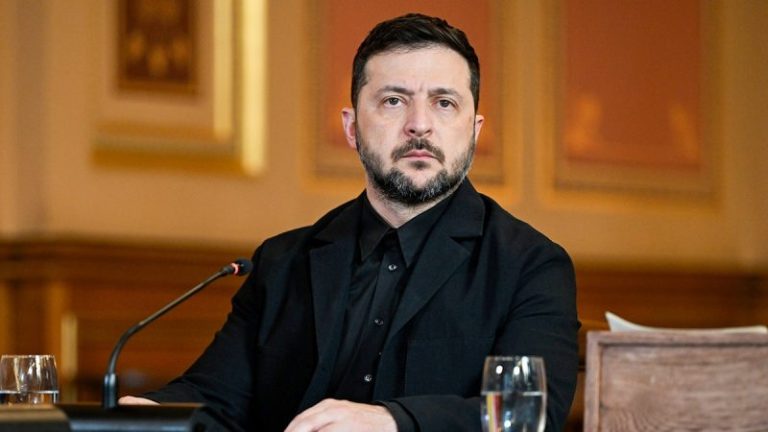Homeownership has long been part of the American dream, but that dream has been deferred.
Households in their 30s have an ownership rate of just 42% — more than 20 points lower than the national average.
The median age of all home buyers is a record-breaking 59, and the age of a first-time buyer is 40 — up from 29 in 1981.
As a solution, the Trump administration is floating a 50-year mortgage.
Though I disagree with that specific idea, I am heartened that they are brainstorming ways to tackle the problem.
We need a Marshall Plan for housing, a collection of broad initiatives to make homes more affordable and put the dream back on track.
The federal government can use its bully pulpit to get changes to red tape and regulations that are holding back building, and encourage policies that would increase housing and decrease costs.
To start, the White House and Fannie Mae should instead promote shorter, 20-year mortgages.
As Ed Pinto of the American Enterprise Institute has argued, a 20-year loan can be paid off ‘when the 30-year-term loan leaves most homeowners saddled with another decade or more of mortgage payments, the cash flow freed up from a paid-off shorter-term loan is available to fund a child’s post-secondary-education needs and later turbocharge one’s own retirement.’
The 20-year loan could be incentivized with a first-time buyer tax credit.
The decline in homeownership is a problem that must be addressed federally and locally.
This would be especially important today when the vast majority of taxpayers no longer itemize their tax returns — which means they cannot avail themselves of the deduction for mortgage interest.
That deduction always favored wealthy buyers of high-end homes anyway — so a targeted tax credit would help those who actually need it far more.
It’s time, as well, for the Trump White House to roll back one of the key initiatives of Elizabeth Warren’s pet project, the Consumer Protection Financial Agency.
The CPFC has pressured banks to limit mortgages to ‘plain vanilla’ mortgages, premised on its rules or what consumers can afford.
Adjustable rate loans and other ‘mortgage products’ can be right for some buyers — who should have a choice of how much risk they want to take in exchange for getting into the home market.
Even a low down payment might be hard to come up with, however, for those who can’t take advantage of generous in-laws.
Those without rich parents might turn to a ‘housing saving account’ — akin to the popular health savings accounts initiated by George W. Bush and which hold some $59 billion and are sheltered from taxation.
The new housing accounts should be tailored only for down payments, however — not long-term maintenance and other homeowner needs.
Buyers also are allowed today to take out $10,000 from their 401(k) penalty-free to go to a downpayment on a home.
Perhaps it’s time to raise that ceiling.
Of course, it goes almost without saying that even the most creative financing and incentives will fall short of addressing our housing needs without the most important problem: Supply.
There are many reasons why there aren’t enough starter homes.
Regulation in many cities makes construction difficult.
More retiring Boomers own second homes.
Banks have increasingly bought real estate as an investment and drive up prices.
Low turnover is another reason Gen X buyers have so much trouble breaking into the market.
During COVID, mortgage rates hit record lows and many refinanced.
These owners have a strong incentive not to trade a 3% mortgage for a new home and a much-higher rate.
Another key reason: more and more of us are living in small households or even alone.
The Census Bureau reports that, between 2019 and 2021, the number of households increased by more than 2 million a year.
That means we not only need more housing but more types of housing — many smaller units especially, rather than the two-acre, one house lots common in so many suburbs.
Here is where the limits of Washington’s hard power is reached.
Much of US housing policy is set at the hyper-local level, by planning boards and zoning boards.
That’s why outgoing New York City Mayor Eric Adams deserves so much credit for his ‘City of Yes’ rezoning in New York, which will permit safe basement apartments and ‘accessory dwelling units’ in parts of the city.
Accessory units — or ‘granny flats’ — can also be the means for older couples to sell the homes to younger households and downsize.
As part of a federal push, though, the Marshall Plan for Housing could encourage these same changes nationwide: Changing zoning to allow more housing; or taking undeveloped state land and providing tax incentives to build on them.
It’s the 18,000 municipalities across the country that are often standing in the way of what might be called naturally occurring affordable housing — small homes on small lots, like those of the original Levittown, where houses were just 750 square feet of living space.
Housing and Urban Development Secretary Scott Turner should urge localities to permit private, unsubsidized, small homes and apartment buildings, or what AEI’s Pinto terms ‘light-touch density.’
It’s far more likely to gain local approval than the subsidized, low-income housing Democrats have long favored, starting with the public housing the socialist Zohran Mamdani wants to revive.
Private building is also less costly; new housing units in California subsidized through the low income housing tax credit can cost upwards of $800,000 per units, a bonanza for developers but not many tenants.
Building costs for any housing, however, will inevitably go up as a result of another Trump policy: his 10% tariff on plentiful Canadian lumber and timber products and a 25% tariff on kitchen cabinets and furniture.
The de facto taxes are causing what the National Association of Home Builders calls ‘headwinds’ holding back new construction.
As a builder himself, he should rethink these tariffs.
Homeownership is a virtuous conspiracy making the nation better.
Owners are more likely to maintain neighborhoods than renters, more likely to improve schools and services by getting involved in local government — the essence of American federalism.
The decline in homeownership is a problem that must be addressed federally and locally.
But the Trump administration can take the lead, with tax breaks and the encouragement of construction.
The president can bring the dream alive again.
This post appeared first on FOX NEWS










